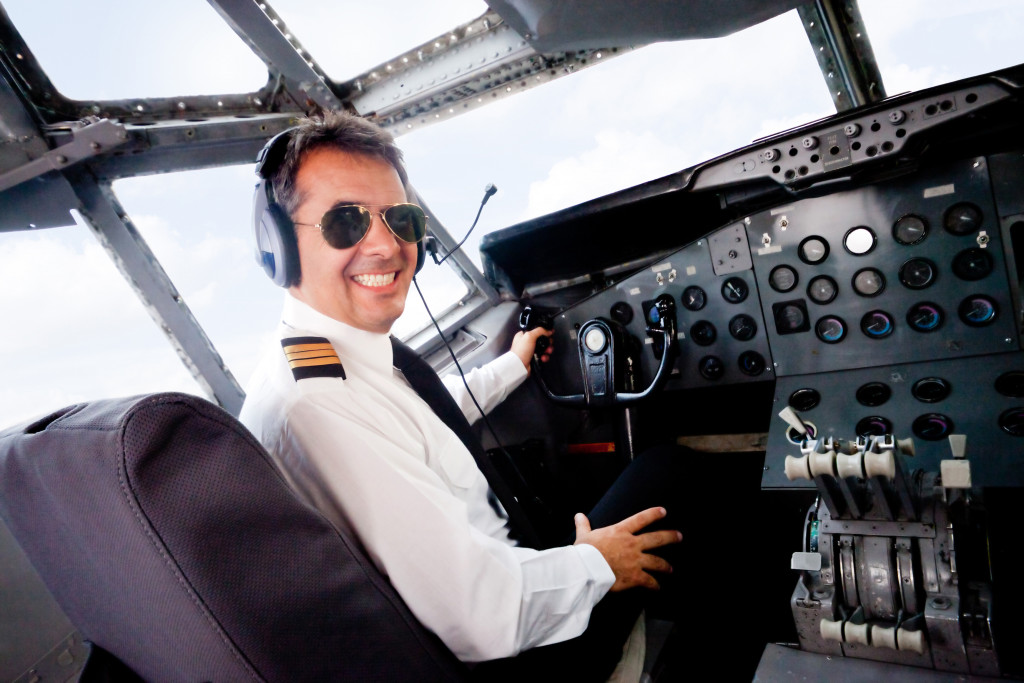Have you ever wanted to fly high in the sky and explore the world from a bird’s eye view? Being a pilot is a rewarding career that offers fantastic possibilities but can also be challenging. Going after your dream of becoming a pilot requires dedication, hard work, and determination. Here are four tips to help you get started on your journey toward success as a pilot.
1. Research the Requirements
The first step towards becoming a pilot is researching the requirements for licensure. This will vary depending on what type of license you want to pursue (e.g., private, commercial, ATP) and where you live. Generally speaking, most aspiring pilots should expect to spend at least two years completing their training before they can even take their first solo flight. Understand the commitment and financial investment that comes with training to become a pilot before you make any decisions.
You should also research the different flight schools and courses available to you. Flight academy is a great way to gain experience in the cockpit and obtain your license faster than if you were to study alone. Be sure to consider the cost of attending a flight school, as this can vary significantly depending on the program’s curriculum and duration.
Additionally, you should look into the different aircraft available for rental when studying at a flight school. It’s essential to have as much experience flying different types of aircraft as possible since it will be necessary to know how to handle each one in various scenarios.
2. Take the Necessary Training
Once you have done your research, it is time to start taking the necessary training to get your license. This will typically come in the form of pilot school, where you learn all the theoretical aspects of flying and actual flight instruction. If finances are an issue, consider looking into scholarships or other financial aid options available to help offset some costs associated with obtaining your pilot’s license.
Flight instruction can be done in various formats, such as with a flight instructor or at an aviation school. Depending on the type of license you are aiming for, additional requirements or exams may need to be completed before obtaining your license. In any case, ensuring that all necessary training and testing have been completed to fly as a pilot legally is vital.
Completing the necessary paperwork and obtaining the appropriate paperwork and endorsements from your instructor is also essential. This includes medical certificates, log books, temporary flight permits, and other records required by the FAA. Once these steps have been completed, you will be ready to take the practical test with an FAA-certified pilot examiner.
3. Practice and Study Regularly

To be successful as a pilot, you must stay on top of your studies and remain consistent in your practice. This means studying and brushing up on the material you have learned during pilot school and logging flight hours regularly with an instructor or mentor. Using simulators and other flight-related apps can also help improve your skills.
Having a designated study plan will help you stay on track. Make sure to include time for studying the technical aspects of flying and the legal and safety regulations you need to know. During your studies, make sure to ask questions, take notes, and apply what you are learning so that it is more likely to stick in your memory.
Practicing can also help you become more confident in your flying abilities and better prepare for the test required to become a pilot. Make sure to practice each maneuver multiple times until it becomes second nature.
4. Prepare for Tests
Depending on your license type, there are specific tests that you will need to pass before being able to obtain a pilot’s license. These may include medical exams, written exams, and practical flight tests taken at licensed testing centers. Make sure you understand the requirements for each test so that you can adequately prepare yourself ahead of time.
Finding a qualified instructor or mentor to help you prepare for each test is highly recommended. They can provide guidance and feedback on your performance, as well as answer any questions that you have about the material. Additionally, taking advantage of online resources such as practice exams and test banks can be incredibly helpful for expanding your knowledge on technical aspects of flying base and refining your test-taking skills.
Finally, make sure to be mentally and physically prepared for the tests. Do your best to stay focused and relaxed during the exams, as this will ensure that you perform at your best. You can confidently become a licensed pilot with the right amount of preparation, determination, and dedication.
In Summary
Pursuing a career as a pilot is an exciting and rewarding journey that requires hard work and dedication. These four tips can help aspiring pilots set themselves up for success on their path toward becoming professional pilots. From researching the requirements to studying, these guidelines provide the foundation for taking off toward becoming a certified pilot! So don’t wait—start going after your dream of becoming a pilot today!



